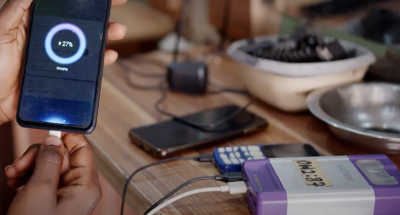The consumer factor
Peter Matlare was also a speaker on my panel, ‘Addressing consumer demand in Africa’, which followed. This was a star-studded panel: Haresh Awani is MD of the Singapore-based Tolaram Group, which has vast packaged foods and infrastructure interests in Nigeria; Arthur Gillis, who had recently completely the sale of one of Africa’s largest hotel groups, Protea Hotels, to Marriott; and the founder of the Mara Group, Ashish Thakkar, the young business genius who went from being a refugee after the genocide in Rwanda to a billionaire today.
I asked the panel the secret of their success in Africa. Aswani said he was the second generation to run the family business in Nigeria. Tolaram has been credited with ‘teaching Nigerians to love noodles’.
He said the noodle business had been growing at 30% compound growth for the last several years and the group was now involved in real estate and a major infrastructure project, the Lagos Free Trade Zone, which will include the Lekki Deep Sea Port, the deepest harbour in West Africa.
Total spending is about $400bn in Nigeria itself, going on to $1.4 trillion by 2030 when 35m households will reach a spending level of $7,500 per year
He warned that Africa is not for the ‘soft hearted’ or for short-term investors. But for those willing to invest long term, problems such as shortages of power and water and inadequate infrastructure can be overcome.
The potential is enormous: “Total spending is about $400bn in Nigeria itself, going on to $1.4 trillion by 2030 when 35m households will reach a spending level of $7,500 per year. The result is a platform for sustainable, medium-to-long-term consumer growth similar to what happened in China and Indonesia.”
Arthur Gillis, who ran the huge Protea Hotel chain before selling the management to Marriott, said his first lesson was that, contrary to what many people thought, you could not get away with providing sub-standard products to Africans.
He said that when he had first moved to Nigeria, “the assumption was that local people were prepared to stay in hovels – very cheap, very low standards. In reality, when we brought in three-star and four-star hotels, the locals flocked there.”
His message was that the only way to succeed in business in Africa was to maintain global standards. In addition, he was very emphatic that one had to have a local partner to succeed. The point had been made earlier by Aswani, who said his company had to adapt to local tastes to succeed.
Matlare reiterated the points made about adapting to local tastes and working with local partners.
“You start with the indigenous products, and you seek to enhance the capability of these current local products to suit the local taste profile, especially for food. If you don’t use decent quality products, it is not going to be successful. You have to training and retrain your people to make sure that the quality of your produce is world class. Pricing is technical, you can work it out, but quality is essential.”
Ashish Thakkar pointed out that Africa was made up of 54 very different countries with unique cultures and business traditions. “Foreign organisations need to find local partners. We need to create that blend of global and local. There is no way a global organisation can come in and create something just right.”
Want to continue reading? Subscribe today.
You've read all your free articles for this month! Subscribe now to enjoy full access to our content.
Digital Monthly
£8.00 / month
Receive full unlimited access to our articles, opinions, podcasts and more.
Digital Yearly
£70.00 / year
Our best value offer - save £26 and gain access to all of our digital content for an entire year!
 Sign in with Google
Sign in with Google 


